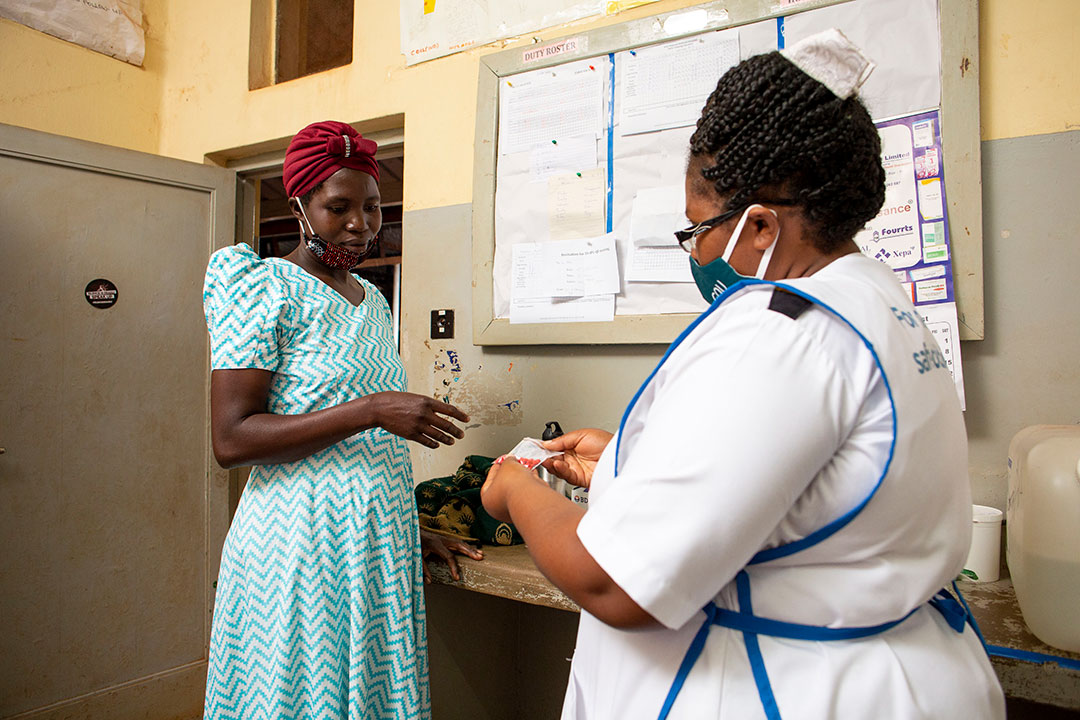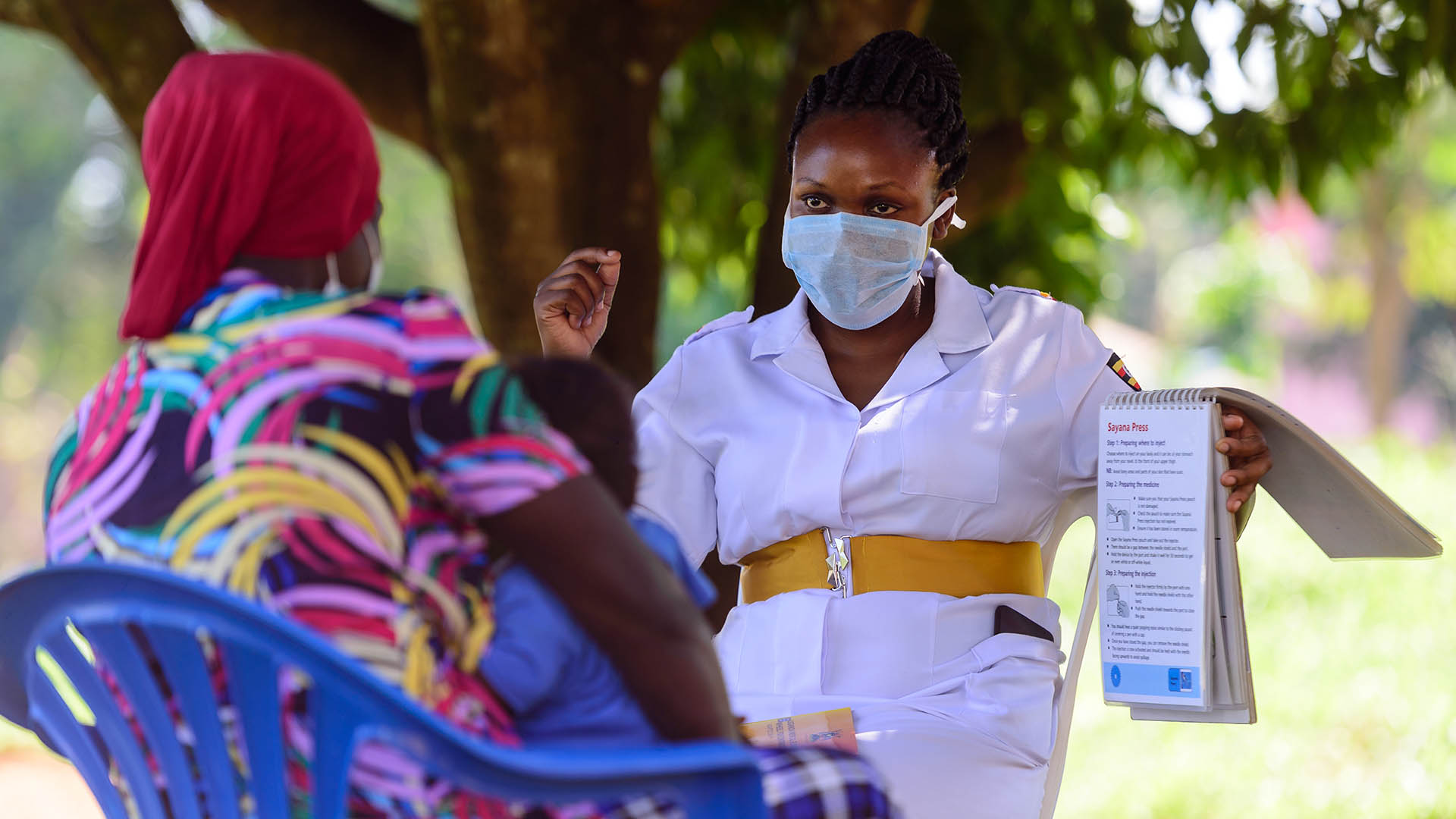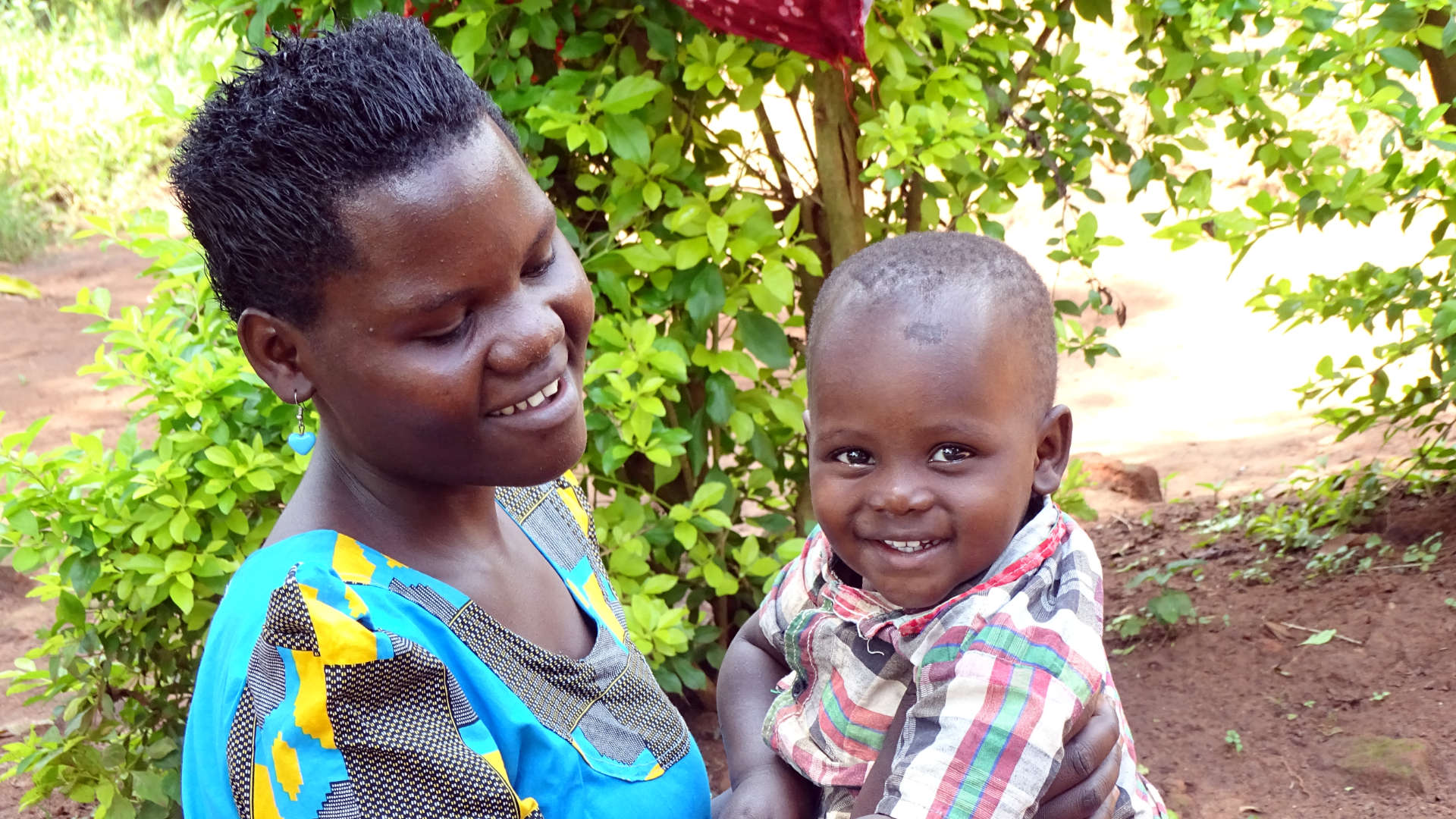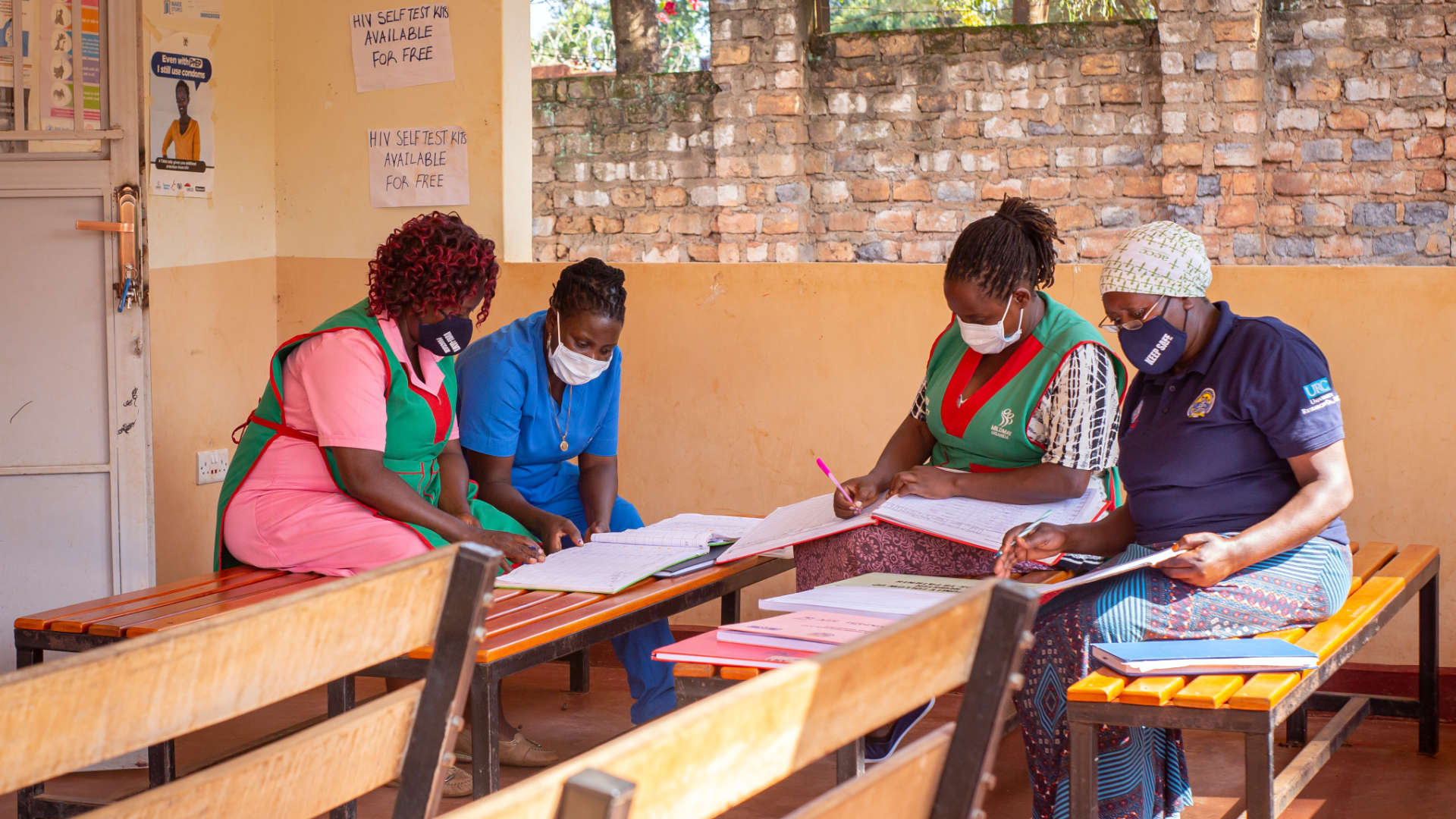Dinah, age 26, is a full-time working mother. When she was five months pregnant, she became nauseous, losing her appetite. She ate infrequent and non-nutritious meals and stopped taking her iron tablets.
“While I understood that the tablets increase blood supply, I did not know the other benefits of taking them during pregnancy,” said Dinah.
One day Dinah collapsed at work. She was found to be severely anemic. Iron deficient anemia occurs when there is insufficient iron for the body to produce healthy red blood cells to carry oxygen to the body’s tissues. Iron deficiency is the most common cause of anemia in pregnancy. Severe anemia during pregnancy increases the risk of premature birth and infant mortality. Dinah was admitted at Iganga General Hospital in East Central Uganda and given a blood transfusion to improve her iron level.
To improve maternal and neonatal outcomes for pregnant women like Dinah, the Uganda Ministry of Health recommends that all pregnant women be given iron and folic acid (IFA) tablets. Supplementation is recommended because iron requirements in pregnancy are rarely met by dietary intake. While IFA tablets are provided to pregnant women at antenatal care (ANC) clinics, consumption of the tablets among pregnant women remains low, with less than 12% of women in East Central Uganda taking the recommended 30 plus IFA tablets during pregnancy.
Addressing Bottlenecks in Provision of Iron and Folic Acid Supplements
The USAID Regional Health Integration to Enhance Services in East Central Uganda (USAID RHITES-EC) Project, in collaboration with International Initiative for Impact Evaluation, the Society for Implementation Science in Nutrition, and the Uganda Ministry of Health, conducted an assessment to identify bottlenecks in IFA Supplementation Programs in East Central Uganda. The assessment revealed three main health provider bottlenecks:
- Uncoordinated health education for iron and folic acid supplementation (IFAS) at service delivery points;
- Recurrent stockouts of IFA; and
- Low male involvement in supporting women to seek ANC services.
To address the health provider bottlenecks (health education and stockouts), USAID RHITES-EC supported 20 high-volume health care facilities in two districts of Iganga and Buyende to implement quality improvement interventions aimed at strengthening practices in the provision of IFA services. Interventions included:
- Holding regular monthly IFAS performance review meetings;
- Re-orienting health workers on the protocols of IFAS; and
- Strengthening provider counseling skills so pregnant women understand the health benefits of IFAS in pregnancy and how to take IFAS appropriately.
Interventions to Improve IFAS Provision at ANC Clinics
- Regular monthly IFAS performance review meetings
- District mentors provide onsite mentorships and reminder to health workers about IFAS standard protocols
- Integrated IFAS messages in health education sessions conducted at ANC clinics
- District medicine management supervisors conduct monthly onsite mentorships for logistics personnel on stock management
- Weekly facility data reviews to assess percentage of pregnant women attending ANC and receiving IFAS to monitor performance
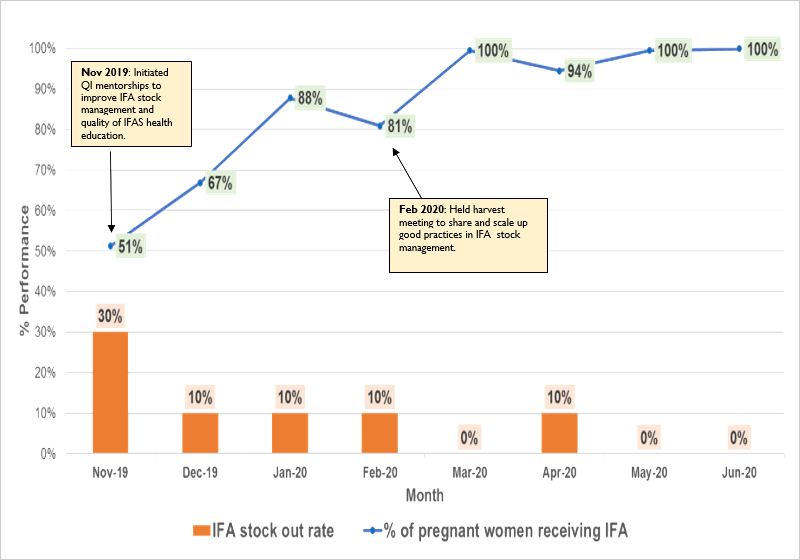
Health Education, Data Tracking Help Improve Supplement Use
Health workers were trained to integrate IFA messages in health education sessions during ANC visits. Logistics personnel at the health care facilities were taught how to capture and extract data to improve quantification (process of estimating quantities and costs of medicines), timely and accurate ordering of the tablets, and accurate stock management, reporting, and forecasting. The data collected guided supply chain decision-making at the district level, including redistributions from overstocked to understocked facilities.
As a result of these interventions, many pregnant women, including Dinah, now receive a full dosage of IFA supplements along with routine health education and IFA counseling during ANC visits.
“The midwife encouraged me to take my tablets. In addition, the health education helped me understand the importance of the iron tablets for both myself and the baby,” Dinah said. On February 22, 2020, Dinah gave birth to a healthy baby girl.
